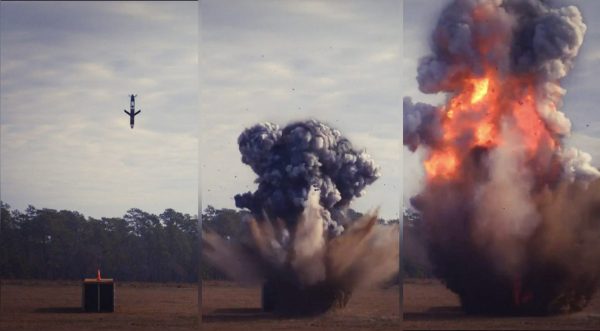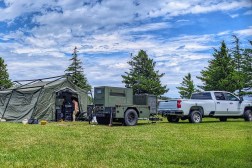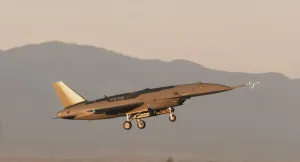Air Force invests in new nuclear effects testing prototypes

The Air Force has tapped California-based fusion power startup Fuse Energy Technologies to deliver nuclear effects testing capabilities that are designed to advance its operators’ tactical survivability and adaptability.
Broadly, nuclear weapon effects testing refers to evaluations that can gauge how objects might respond to the outputs of a nuclear weapon. Since the U.S. halted full-scale nuclear underground testing in 1992, these assessments have been conducted with technological simulators.
Through a recently awarded Small Business Innovation Research (SBIR) contract, announced Wednesday, Fuse is partnering with the innovation hub AFWERX and the Air Force Research Laboratory (AFRL) to prototype and refine new nuclear effects testing options for military personnel.
“The current nuclear weapons simulators are old and aging out. They are also oversubscribed. The threat profile has also evolved. Fuse will provide modern threat simulators and increase testing availability at a fraction of the cost,” JC Btaiche, Fuse’s CEO and founder, told DefenseScoop in an email ahead of the contract’s announcement.
He did not confirm the exact value of the new SBIR deal.
Still, Btaiche noted that he views it as “a modest contract to get our foot in the door into the [$127 billion] Programs of Record across the [departments of Defense and Energy] for nuclear simulation and effects testing, and fusion pulse power, authorized over the next 5 years.”
Details regarding all of Fuse’s action items under this SBIR contract are sparse at the time of its announcement.
According to a press release published Wednesday, the company has already demonstrated multiple pulsed-power prototypes. Through this contract, officials aim to further prototype additional solutions in the electromagnetic spectrum.
“The probability of a nuclear war is higher now than it has ever been. Russia is being more aggressive in showing off its strategic nuclear capabilities and we need to ensure that we are ready,” Btaiche told DefenseScoop.






